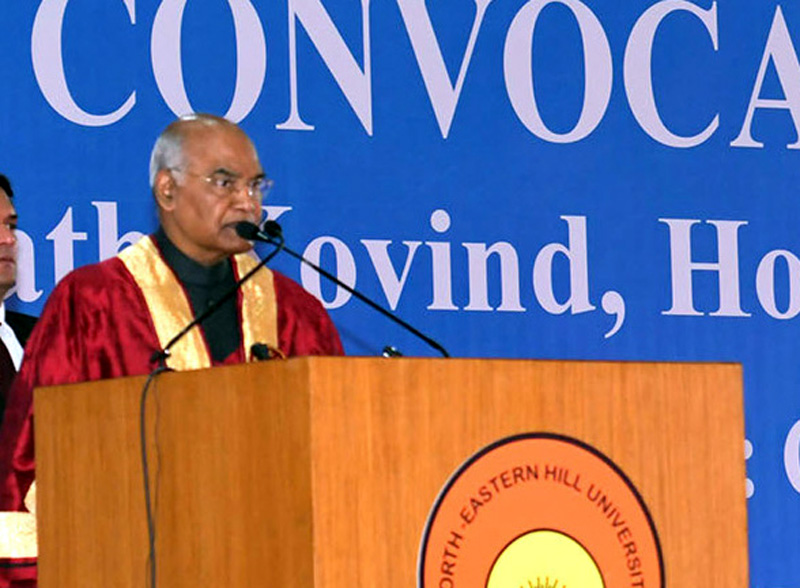
SHILLONG, Nov 4: President Ram Nath Kovind Monday said institutes of higher education can be instruments of social and economic transformation to help states in human development indices.
Kovind was where the University is conferring various degrees to over 14,500 students at the university and about 75 affiliating colleges.
Institute of higher education like North Eastern Hill Universities can be instruments of social and economic changes to make transformation and can help Meghalaya achieve better ranking in human development indices, he said addressing the 26th convocation of NEHU here.
Eighty per cent of the popu lation in the state are farmers and students and teachers of NEHUs departments of rural development and agricultural production, agri business and food technology and horticulture can help enhance farmers income. By helping to improve agricultural productivity, NEHU can play a catalytic role in promoting socio-economic development of Meghalaya and the North-East,” he said.
He lauded the University’s efforts to promote employability and self employment and said such endeavours need utmost encouragement.
The country can learn a lot from the progressive society in Meghalaya where women are given priority, he said recalling the contributions of local freedom fighters U Tirot Sing, U Kiang Nangbah and Pa Togan Sangma.
Kovind recollected that he had visited Meghalaya as an MP in the past and lauded Mawlynnong for being the cleanest village in Asia and how brooms from Meghalaya are in huge demands everywhere.
Clean waters of Umngot river reflect the wisdom of the people and the living rootbridges set up across streams could last 500 years here, he said. The President also lauded the University for awarding the D-Lit to Kamubhai Hasmukhbhai Tailor, who helped set up the Disable Welfare Trust of India and render yeoman services to divyangs in the country.
He also urged the stakeholders to focus on social responsibility and the NEHU students could spend time at some villages, help villagers deal with their problems and make them aware of the importance of education, cleanliness, vaccination and nutrition for children. (PTI)

